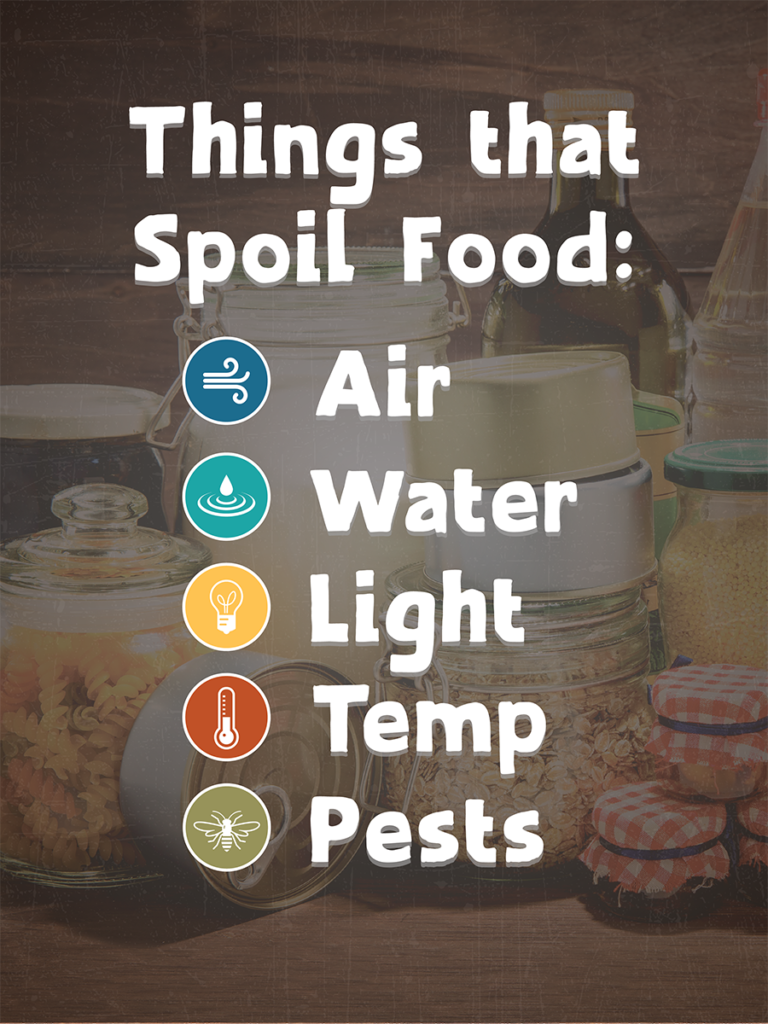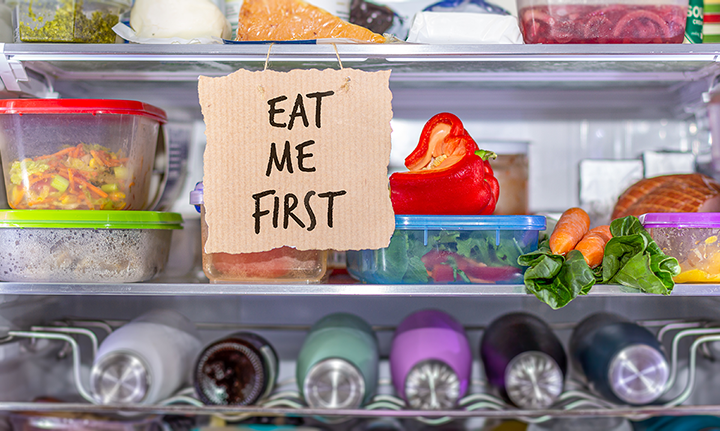Food spoilage is a common problem that affects the quality, safety, and taste of our food. There are six main factors that contribute to food spoilage: air, water, oil, light, temperature, and pests. Understanding these factors can help us to prevent food spoilage and maintain the quality and safety of our food.
Air. Exposure to air can cause oxidation and the growth of bacteria and fungi, which can lead to spoilage. It’s important to properly seal and store food in airtight containers to prevent exposure to air and preserve freshness.
Water. Moisture can cause food to spoil quickly, as it provides a breeding ground for bacteria and mold. Keep food dry and properly stored in order to prevent the growth of harmful bacteria.
Oil. Three factors break down oils: Oxidation, Microbial Growth and Hydrolysis. To extend the life of foods with high oil content, store it properly in a cool, dark place away from heat, light, and moisture.
Light. Exposure to light can cause food to spoil quickly, especially for foods that are sensitive to light, such as dairy products and oils. It’s important to store these foods in opaque containers or in a dark place to prevent exposure to light and maintain freshness.
Temperature. Extreme temperatures, both hot and cold, can cause food to spoil quickly. Food that is stored at temperatures between 40°F and 140°F is in the “danger zone,” which is the temperature range that allows bacteria to grow quickly. It’s important to store food at the appropriate temperature to prevent spoilage and maintain safety.
Pests. Insects and rodents can contaminate food and cause spoilage. It’s important to store food in pest-proof containers and to regularly clean and inspect storage areas to prevent infestations.

By understanding these factors and taking appropriate measures to prevent exposure to them, we can extend the shelf life of our food, maintain its safety, and preserve its quality and taste. Proper storage and handling of food is key to reducing food waste, saving money, and promoting a healthy diet.
